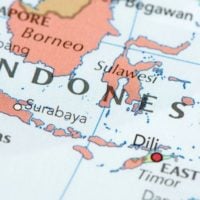Deadline: 28-Mar-23
The European Commission (EC) is calling for proposals for Reinforcing science policy support with IPBES and IPCC for better interconnected biodiversity and climate policies.
Scope
- In line with the Commission’s priority ‘A stronger Europe in the world’, the European Union must take and demonstrate leadership in this field, notably by increasing its support to the EU and global biodiversity knowledge centres and to IPBES – and to elevate it to the same level as the IPCC.
- Besides economic support, this also includes networking efforts to reinforce synergies and cooperation of the work of EU services, scientists and practitioners with CBD, IPBES, regional Multilateral Environmental Agreements, UN organisations and programmes, and other relevant research communities to underpin the implementation, monitoring and review of the post 2020 global biodiversity framework.
- This action delivers targeted support to areas of specific interest for European research policy by using as well as contributing to IPBES outputs. It also helps European scientists, in particular those from southern, central and eastern EU countries, and those from the Western Balkans, Central Asia, and from Africa[3], who remain underrepresented, due to a lack of capacity to participate in meetings, networking or science input at global level, to play their role by contributing to EU and global regular assessments (EU ecosystem assessment, IPBES global assessments, Gap and Stocktake Reports, global biodiversity outlook). Major functions of IPBES still need to be further developed to achieve a proper level of uptake in Europe: knowledge generation, policy support and capacity building functions, including the task forces.
Funding Information
The check will normally be done for the coordinator if the requested grant amount is equal to or greater than EUR 500 000, except for:
- public bodies (entities established as a public body under national law, including local, regional or national authorities) or international organisations; and
- cases where the individual requested grant amount is not more than EUR 60 000 (lowvalue grant).
Expected Outcomes
In line with the Commission priority ‘A stronger Europe in the world’, a successful proposal will step up EU science policy support to biodiversity policy at EU and international level, and in particular the interconnections with climate policies[1]. This will require the contribution to processes triggered by the EU and global biodiversity knowledge centres, IPBES and IPCC to achieve targeted impacts on biodiversity-relevant policies, and to integrate structured policy input into the research cycle. Projects should deliver the following outcomes:
- EU projects and initiatives are aware of and use the knowledge generation, policy support and capacity building functions of IPBES, including the recommendations issued by task forces of IPBES and IPCC (where relevant for biodiversity);
- Contribution of and uptake by research projects and initiatives reinforcing the evidence base of EU biodiversity and climate policy by promoting synergies and avoiding conflicts, as well as taking into account the knowledge generation, policy support and capacity building functions of IPBES, in line with the recommendations issued by the task forces of IPBES and IPCC;
- Address shortcomings in the uptake of IPBES and IPCC findings and conclusions in sectorial policy making other than for biodiversity, and business decisions at European, national and local level;
- Better support from EU research for policy requests to the EU and global Knowledge Centres for Biodiversity and to the European contribution to IPBES.
Eligibility Criteria
- To become a beneficiary, legal entities must be eligible for funding.
- To be eligible for funding, applicants must be established in one of the following countries:
- the Member States of the European Union, including their outermost regions,
- the Overseas Countries and Territories (OCTs) linked to the Member States,
- countries associated to Horizon Europe;
- the following low- and middle-income countries.
For more information, visit European Commission.









































